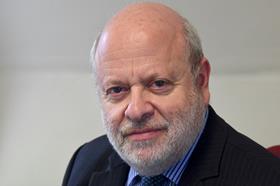
Nomads are seen by some as primitive people, escaping the restrictions and benefits of settled society. In this view, progress comes with settlement. Some call for nomadism to be stamped out, maybe in the interests of nomads themselves, or maybe for the benefit of settled people, or maybe both.
A few days ago, Matthew Parris called in The Times for travellers in Britain to be told that their way of life is over: ‘There is simply no place for the true nomad in modern Britain’. His complaint arose following their setting up camp in the Derbyshire town of Matlock, near his property in the Peak District.
But, bizarrely, nomadism is back in fashion, albeit in a different form to the one complained of by Matthew Parris. Digital nomadism is alive and thriving, and, like its physical manifestation, it undermines the rules of settled communities.
Don’t worry, I have not strayed from the topic of lawyers. Whether because of the pandemic, or just because it is now technically possible, some lawyers may be choosing a more nomadic lifestyle.
Such choices upset our settled professional rules as much as older forms of nomadism upset settled norms. Maybe this time critics of old-style nomadism will see the new form as a sign of a progressive and fruitful future.
The picture of a digital nomad used to be of a backpacker working out of a beach café in Thailand. But many people, including lawyers, have changed country as a result of the pandemic. They may not up sticks every few months with their herds to travel to a different jurisdiction – or to avoid tax like some digital nomads - but, in true nomadic style, they do not live within geographical borders or within the rules that usually apply within such borders.
It may have started by being caught by travel restrictions in another country, or having chosen to spend lockdown with families elsewhere. I know a solicitor who, whenever I speak to him, is in a different country’s quarantine hotel. A new life in another country is now possible without the switch affecting work. It may have started with just one move – but now that moving is possible, more frequent moves may become the norm.
Nevertheless, we know from the pandemic that there are limits to virtual practice. Those who appear in courts are not convinced that proper solutions have been found to anything other than interlocutory hearings. Those who have clients who are vulnerable, or with some disabilities, or are serving clients on the other side of the digital divide such as the elderly, will have to continue with a physical practice close to their clients. But many others are free to choose.
As I have written before, the American Bar Association (ABA) has recently issued two formal opinions regarding lawyers in such a position. Of course, it doesn’t use the phrase ‘nomadism’, but sticks with the more formal titles of ‘remote working’ and ‘virtual practice’. They can be taken as guides to the kind of problems which the new lifestyle may cause a lawyer.
First, there are some things for which a system will always be needed, such as to process physical mail or to deal with clients who expect a physical meeting.
There are other well-known issues, too: the need to understand the technology used, and the terms and conditions of platform providers in terms of data and security; the need to maintain confidentiality in a setting which is less secure than an office.
One of the more important areas is the unauthorised practice of law. This is important for the US with its federal system, where there are strict rules about practising across state boundaries. But it applies just as much to national frontiers. Does the country where a lawyer has ended up permit temporary or permanent practice by a foreign lawyer? And if not, what are the consequences for the lawfulness of the work undertaken, or just as importantly for professional indemnity insurance coverage?
But, given that such lawyers will mostly be serving clients from their home jurisdiction under home law, the ABA sensibly says: ‘A local jurisdiction has no real interest in prohibiting a lawyer from practising the law of a jurisdiction in which that lawyer is licensed and therefore qualified to represent clients in that jurisdiction.’ But some national jurisdictions may feel that they have a real interest nevertheless.
A borderless cyberworld has opened up before us, across which lawyers can roam freely. A hesitant start may turn into a substantial shift. We might therefore expect more legal Matthew Parris’s to crop up in years to come, decrying digitally nomadic lawyers parking themselves within their jurisdiction and ignoring their local rules.
But how interesting if the cycle has gone from nomadism to settlement and now on to nomadism again.
Jonathan Goldsmith is Law Society Council member for EU matters and a former secretary general of the Council of Bars and Law Societies of Europe. All views expressed are personal and are not made in his capacity as a Law Society Council member, nor on behalf of the Law Society































9 Readers' comments